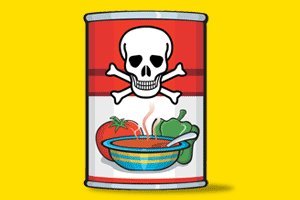Earlier this week I blogged about Maine governor Paul LePage’s recent weird comments about the chemical BPA. “The only thing that I’ve heard is if you take a plastic bottle and put it in the microwave and you heat it up, it gives off a chemical similar to estrogen,” remarked LePage, scientifically. “So the worst case is some women may have little beards.” Uh-huh.
Tempting though it may be to blame a comment this embarrassing on temprorary insanity, a great piece in the Boston Phoenix suggests otherwise. Turns out LePage has hired some lobbyists for out-of-state drug and toy industry groups to help him form his opinions on environmental and kid-safety legislation.
Shortly after he was elected last year, LePage released a “wish-list” of environmental and health regulations he hoped to roll back. LePage said the ideas in the document came from small business owners in Maine. But it turns out that the wish list was actually the work of Ann Robinson, head of the corporate lobbying group Preti Flaherty Beliveau & Pachios. Robinson’s clients have included PhRMA and Merck. Also the Toy Industry Association of America, which fought Maine’s proposed BPA ban in baby bottles and sippy cups last year. Robinson served as co-chair of LePage’s transition team and is currently his head advisor on regulatory reform.
In addition to Robinson, LePage also hired Patricia Aho, a lobbyist with the law firm Pierce Atwood, as his deputy commissioner of the Department of Environmental Protection.
Robinson and Aho are not exactly unbiased when it comes to regulations:













